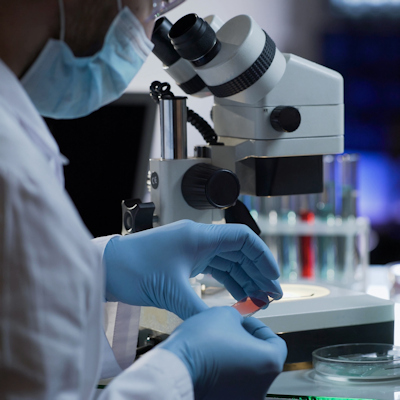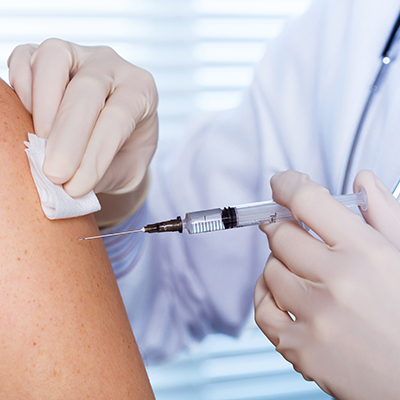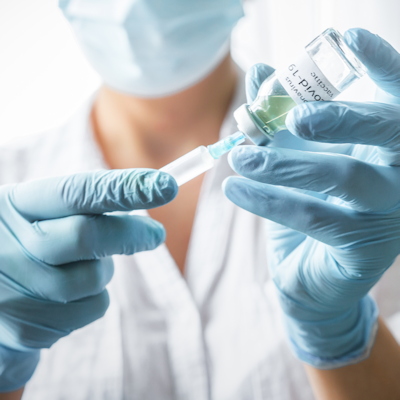July 27, 2022 -- A study led by University of California, Berkeley (UC Berkeley) researchers has identified specific proteins within the human body that can either promote SARS-CoV-2 infections or protect against them, a discovery they contend could lead to new antiviral therapies.
In the study, published July 25 in the journal Nature Genetics, researchers examined how the SARS-CoV-2 virus interacts with human lung cells. The Berkeley-led team used CRISPR technology to test the impact of every human gene on SARS-CoV-2 infections in lung epithelial cells, revealing new pathways that the virus relies on to infect cells and the antiviral pathways that help thwart them.
Researchers first conducted genome-wide CRISPR gain-of-function and loss-of-function screening to eliminate or overexpress every gene in the human genome, and then they measured the impact of these gene expression changes on SARS-CoV-2 infection in lung epithelial cells.
"It is well known that virus infection can be promoted or inhibited by our own proteins," Scott Biering, PhD, the study's co-lead author and a postdoctoral researcher at UC Berkeley's School of Public Health, said in a statement. "But this is the first time that a systematic investigation of these host cell proteins has been conducted in human lung epithelial cells for SARS-CoV-2 infection."
Researchers found that mucins, the major macromolecular components of mucus found in the lungs, seem to help block the SARS-CoV-2 virus from entering cells and that mucin expression levels in a person's lungs may impact COVID-19 disease progression.
MUC1 and MUC4 -- two types of mucins found in lung cell membranes -- apparently defend lung cells from infection, which is an important discovery given that previous studies had suggested that an accumulation of mucus could be the reason why some individuals became seriously ill with COVID-19 and led to clinical use of drugs to deplete mucus.
To the contrary, the Berkeley-led study makes the case that such a strategy could interfere with mucins that provide a valuable defense mechanism against SARS-CoV-2 infection. At the same time, the researchers discovered that other mucins secreted into the mucus lining of the lungs -- MUC5AC and MUC5B -- either do nothing to stop SARS-CoV-2 infection or can even promote viral infection.
While mucins are complex and more research is needed to fully understand them, Biering pointed out that both the type and amount of mucus that a person produces may result in different outcomes for SARS-CoV-2 infection and necessitate different treatment options.
"Somebody who produces a lot of the right type of mucus could be very protected. But somebody who produces a lot of the wrong type of mucus might have more risk of infection," Biering said. "And somebody who produces very little of the right type also could be at more risk."
Copyright © 2022 scienceboard.net










